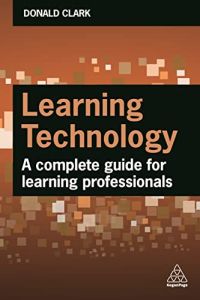
Learning Technology
A Complete Guide for Learning Professionals
Recommendation
People typically study technology from a scientific lens. Now it’s time to broaden the scope of technology studies, says Donald Clark, treating it as a discipline, like psychology or sociology. Clark traces how innovation in learning technology has dramatically shaped and influenced the trajectory of human evolution. He takes readers on a journey spanning millennia, beginning with prehistoric cave paintings and ending with metaverse possibilities. Discover how human curiosity fuels learning technologies, disrupting learning institutions, classrooms and everyday life.
Summary
About the Author
Donald Clark is the author of Artificial Intelligence for Learning and Learning Experience Design. He is the founder and CEO of WildFire Learning and a founding member of the multimedia production company Epic Group plc.
By the same author
Learners who read this summary also read
Related Skills





















Comment on this summary